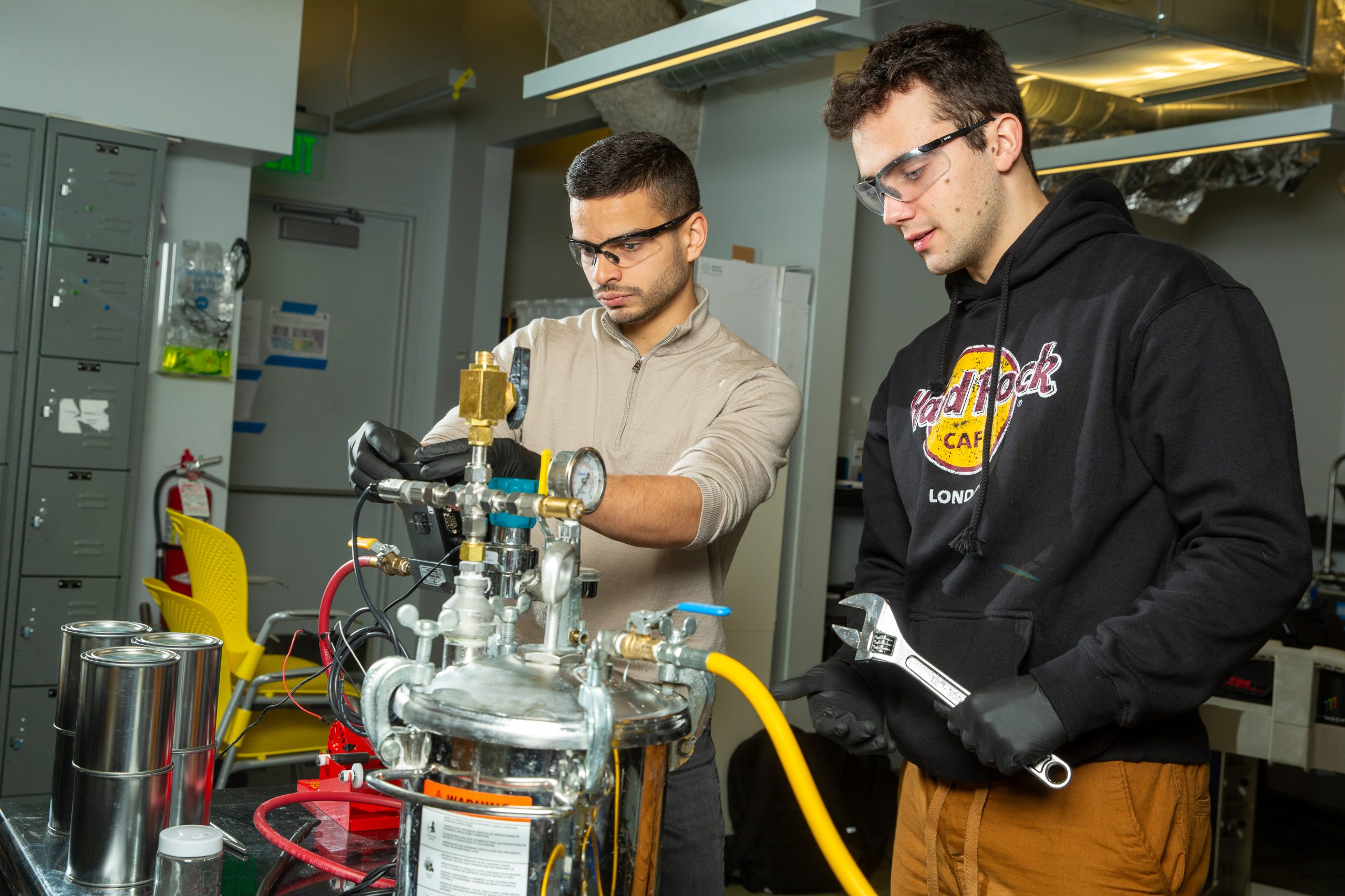Wait for politicians to solve the economic crisis? No thanks. Some Greeks are doing it for themselves.

Maarten van der Schaaf | September/October 2012 Issue
In a crumbling covered market in Athens’ Kypseli neighborhood, Mitsi Vrassivanopoulou mans a buffet table filled with Greek delicacies.
“Salad?”
The man standing before her nods.
“And some quiche?”
“Yes, great.” He fills a cup with water and sits down on a plastic chair among dozens of neighborhood residents who eat as they carry on animated discussions.
Volunteers have been organizing this free neighborhood lunch for the last few months, Vrassivanopoulou explains later over a glass of red wine. Vrassivanopoulou, a 60-year-old grandmother who works as a translator, has short, pitch-black hair; severe red glasses rest on her nose. “Whoever wants to contribute brings along something good to eat,” she says.
The initiative, which has drawn around 60 participants today, is intended to help the growing number of locals the crisis has thrown into poverty, but most of all to bring residents into contact with one another and strengthen solidarity.
Ten years ago, this monumental marketplace stood empty, until Vrassivanopoulou and several neighbors decided to occupy it in 2008. They transformed the building into a lively neighborhood center. “In the last three-and-a-half years, we’ve done more for the neighborhood than the local government has done in the last 20 years,” Vrassivanopoulou laughs. More than 200 immigrants receive weekly language lessons here. There are exhibitions, dance nights, film screenings, theatrical performances and an organic market. And, recently, a neighborhood lunch every Sunday has been launched. All these activities are free of charge; the center runs entirely on the efforts of volunteers.

There are plenty of enterprising citizens such as Vrassivanopoulou. Many Greeks have stopped waiting for politicians and are taking their own steps to bring about social change. Old and young alike are active, from all strata of society. There are doctors who provide free consultations, dentists who fill teeth at no charge and teachers who give lessons without being paid.
There’s a reason for all this: Greece is facing increasingly intractable problems. In 2008, it became evident that the government had been cooking the books for years, and the country was virtually bankrupt. Since then, the government—under pressure from the European Central Bank and the International Monetary Fund—has drastically lowered its expenditures and simultaneously raised taxes. The consequences of those measures are enormous. At least 30 percent of the Greek population is unemployed, and more than half of young adults are without jobs. Few can make ends meet on unemployment benefits, which are around $450 a month. Homeless people and beggars fill the streets of Athens. The number of suicides has risen by 25 percent, as has the number of people suffering from depression.
Political unrest is also rife. There are daily demonstrations against the budget cuts and confrontations between police and furious citizens. The parties opposing the cuts, the left-wing extremist Syriza and the right-wing extremist Golden Dawn, have seen their popularity skyrocket, with Syriza winning the second largest share of the vote in June parliamentary elections. It refused to join the coalition, though, leaving the Conservatives, the moderate Democratic Left and the Socialists to govern. The latter two parties have been in power for the last four decades and have been blamed for chronic mismanagement of the economy.
But in places like this covered market, something new is emerging, perhaps a more optimistic chapter in this modern Greek tragedy. “Greek society has pleasantly surprised me,” says Panos Papadopoulou, cofounder of the neighborhood lunch initiative, who lowers his voice to a theatrical whisper as he reveals his day job: government ministry official. “Greece is teeming with social initiatives.”
The central square in Exarcheia, the Athens neighborhood that is the epicenter of the radical left protests, is filled with banners. Day and night, the square is home to debating anarchists, students and revolutionaries. The walls are covered in sayings written in chalk such as Bomb Greece to the Stone Age. Posters for protest meetings and revolutionary powwows are plastered over decaying walls and abandoned storefronts.
Unsurprisingly, this is the neighborhood where quirky swap shop Skoros is located. Its founders view the shop as a statement against consumerism. Reduce, Reuse, Recycle, reads the text on Skoros’ front door. Inside are two full bookcases, a rack of CDs, shelves overflowing with kitchen utensils and a bin filled with toys. The first floor contains endless racks of clothes. “The idea behind Skoros is that everyone has stuff at home that you don’t need, while somebody else could put it to good use,” says Zoe Kanellopoulou, an energetic woman in her 50s who works as a freelance television producer. “The shop gets things to people who truly benefit from them.” No money changes hands. “This is how we try to increase mutual solidarity.”
Skoros is almost three years old. The shop is open six evenings a week. All 20 cofounders work a weekly shift. To pay the shop’s rent, they each contributed $25 a month in the beginning. Now there’s a donation jar in the shop that brings in enough to pay fixed expenses. “We’re hoping to initiate a change in thinking,” Kanellopoulou says. “People need to give more thought to what they buy. ‘Buy only what you need’ is our message.”
Whether a free swap shop is the best medium for that message is doubtful, as evidenced a short while later when three children rush into the shop and fall upon the bin of toys.
 “Wait a second, I need to handle this,” Kanellopoulou apologizes as she turns to the young visitors. “Three toys maximum, guys. Otherwise there won’t be anything left for the other kids.” The trio grumbles and makes their choices, then leave as quickly as they arrived.
“Wait a second, I need to handle this,” Kanellopoulou apologizes as she turns to the young visitors. “Three toys maximum, guys. Otherwise there won’t be anything left for the other kids.” The trio grumbles and makes their choices, then leave as quickly as they arrived.
“You know what the problem is?” Kanellopoulou sighs when she sits back down at the table. “When things are free, it makes people greedy. And that definitely isn’t limited to children.”
Yet there are visitors who do understand the concept, such as Polina, a young street musician who walks in a short while later with a bag full of clothes over her shoulder and a large, black coat rack in her hand. “I think Skoros is a great idea,” she says as she looks through the clothes rack. “When I find something at home I never use, I bring it here. And sometimes I find something nice here that I can take home with me for free. Great, isn’t it?”
Old-fashioned swapping: Could that be the solution for a country in financial straits? Christos Papaioannou thinks it can. He’s one of the founders of TEM (the initials stand for “alternative local currency” in Greek), which is used in Volos, a port city with 160,000 residents some 200 miles north of Athens. Participants, currently around 1,000 citizens and companies, offer their goods and services to each other through an online platform. They pay each other in the virtual currency. “Our network has slowly grown so large that members can find nearly everything there,” Papaioannou, 37, says with pride. “We’ve got auto mechanics, construction workers, bakers, doctors, you name it.” The network is a lifesaver for Greeks who are unemployed or earn little. By offering their time and expertise to members, they earn TEMs, which they can use to buy groceries through the network.
The platform is more than just an economic network for surviving the crisis, Papaioannou emphasizes: “TEM is a proposal for a different kind of economic system, in which the emphasis is on cooperation and solidarity instead of competition and personal gain. Cooperation and solidarity work best when people know each other or can get to know each other. And that can only happen if the network stays small enough.” That’s why TEM’s creators plan to split up the network as soon as it exceeds 2,000 members.
Keeping the system small is also crucial for other reasons. “Because the currency is only used locally, it’s always directly linked to the actual economy and to the relationships among residents of a particular community,” Papaioannou explains. “Banks, speculators and other intermediaries can’t influence the system.” The network’s limited scale also prevents participants from acquiring a dominant position that they might abuse, causing the system to fall apart, he says. “That’s what happened during the economic crisis in Argentina, when the entire country was using a similar system.”
No tax is paid on TEM transactions. As a result, some people accuse Papaioannou of using the network as a way to evade taxes. “Absolute nonsense,” he says, shaking his head. “You pay taxes to secure community services, but in Greece a lot of tax money has done nothing but line the pockets of corrupt politicians. In contrast, this system has a social and cooperative nature. So by definition, every transaction contributes to the community.”
Yet the system can still be improved, Papaioannou acknowledges. He refers to a similar initiative being created in Athens, where participants exchange time instead of money. A technician who spends an hour building a computer can receive an hour-long massage in return, for example. “Actually, that’s even more equitable,” he says, “because that way, the hourly wage is the same for everyone. Who knows, maybe TEM will evolve in that direction in the future.”
The crisis has made many Greeks realize that small-scale, horizontal communities function better than massive, centrally organized communities. To them, the corrupt Greek government and the unworkably large European Union are the ultimate examples of how not to do things. What’s true for public administration is also true for companies—and since the crisis, the popularity of labor collectives has skyrocketed.
“No one knows exactly how big the sector is,” says Ioannis Nasioulas of CIRIEC, the European center for cooperative economy in Brussels, where he has spent the last few years investigating the abuse of EU funds by NGOs, institutes and cooperatives in Greece. Despite the fact the statistics are extremely murky, he estimates that active cooperatives turn over some $2.5 billion, thereby contributing 1 percent of the Greek national income. Traditional agricultural collectives are good for half of that; the other half is earned by partnerships between various collectives and cooperatives that provide a service, among them courier companies, mechanics and computer repair technicians.
These cooperatives are also experimenting with decision-making by all members, a concept of democratic participation that is nearly unimaginable in this era of European technocrats. The Kypseli residents who organize the neighborhood lunch also make their decisions in monthly meetings in which everyone is welcome to discuss the neighborhood’s priorities. “The majority gets its way,” says Papadopoulou, the “secret” government official, “but we always strive for consensus. We’re experimenting with democracy from the bottom up.”
At the foot of the Acropolis lies Synallois, a five-person labor collective that runs a retail and wholesale shop in fair-trade products. In the shop, painted bright yellow, red and green, 52-year-old Lily Achrami and her colleagues sell organic coffee from Mexico, couscous from the Palestinian Territories, marmalade from one of the hundreds of Greek farmers’ cooperatives run by women, and other products. Achrami, who is a former hotel manager and café owner, was never comfortable in her relationship with her subordinates. She is much happier at Synallois, which has no bosses and no employees. “Here, I don’t have to push anyone to work; we all have the same goal.” That common goal is larger than just building a flourishing fair-trade business. “In doing this work, we’re engaging in politics,” she says as she rolls a cigarette. “We have an idea of how society could be different. A lot of Greeks are hungry for that.”
That’s not to say the flat organizational structure presents no problems; far from it. “Decision-making is a lot slower,” she says. “If we disagree during our weekly meeting, we give it between 20 days and three months, depending on how important the decision is, to reach consensus. If that fails, we take a majority vote.” That method of reaching decisions takes a long time, but it’s teaching Achrami to be a better listener. It’s also improving morale on the work floor.
“A lot of Greeks are depressed,” she says. “I’ve been there myself from time to time. That’s why I often stay late at the shop. Here, we’re working on the future.”
Working on the Future
More of Today's Solutions
MIT engineers convert soda cans and seawater into zero-emission fuel
BY THE OPTIMIST DAILY EDITORIAL TEAM In a breakthrough for sustainable energy, MIT engineers developed a way to produce hydrogen fuel from ordinary elements ...
Read MoreResearch reveals that ADHD may have given us an evolutionary edge
In an unexpected twist, features formerly associated with Attention Deficit Hyperactivity Disorder (ADHD) are now being studied via an evolutionary lens. A new study ...
Read MoreThe science behind the top 2 personality traits people look for in romantic p...
In a world dominated by superficial characteristics, a recent study published in the Archives of Sexual Behavior offers a novel viewpoint on love preferences. ...
Read MoreMicrowave magic redefines lithium recovery in batteries
BY THE OPTIMIST DAILY EDITORIAL TEAM As the need for rechargeable technology—from smartphones to electric vehicles—increases, so does the demand for lithium. This rare ...
Read More










